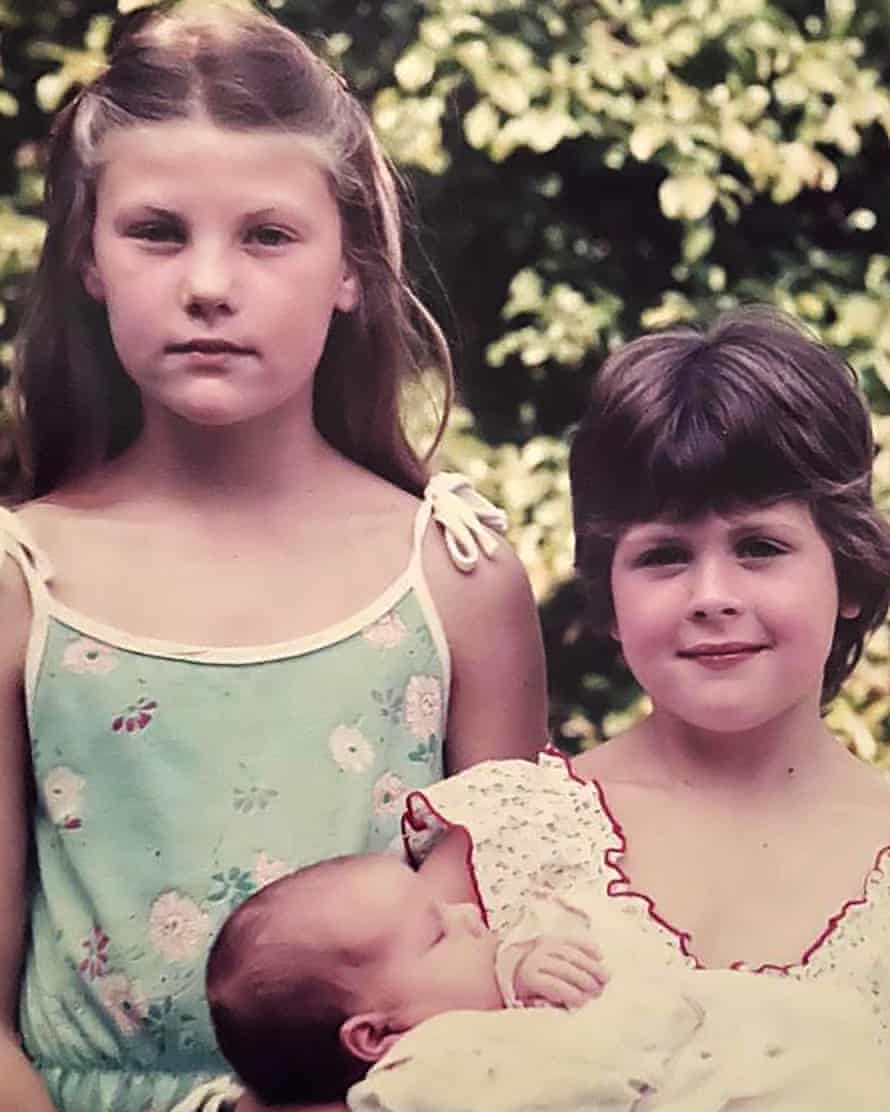Is the sibling relationship the most enduring of all?

When I come across couples celebrating their diamond wedding anniversary I always wonder: “Who are these rare creatures who have managed to sustain a relationship for 60 years?” All those baked potatoes for dinner and trips to put the bins out. I’m amazed at the endurance of their love, but mostly I’m touched by their ability to peer through varifocals and see the bride or groom of their youth, to understand what shaped them because they witnessed it all. Similarly, stories of friends who met over government-issue milk at school and are still best friends can completely undo me. It turns out I weep easily at the idea of being known and loved by someone close – for so long.
I am lucky to have old friends. Being in their company is one of my favourite things. I have also been married for ages, and I sometimes indulge in the image of me in 2061, clasping the dry, old hand of my husband and telling whoever will listen about the young man I married, and our secret to a long and happy life together.
But, magnificent as these relationships are, they will probably not be the longest of my life, nor – perhaps – the most formative. Those accolades are reserved for the bonds I have with my two sisters, which have already lasted 44 and 37 years. If I make it to 83 (the average life expectancy for a woman in the UK), I can say I’ve known them for 83 and 76 years respectively.
Almost 80% of us have a sibling. Our relationships with them pre-date friendships and any romances, and usually outlast the parent-child relationship, too. Obviously we don’t choose them, in the way we choose a spouse or a someone to rampage around the playground or get drunk in a park with. Yet it is an amazing thing to contemplate: sharing (more or less) your whole life with another person or people.
I know there are so many caveats to this simple generalisation. What about half- and step-siblings? Siblings we no longer speak to, or those we have lost? When I started making Relatively – a podcast about brothers and sisters – I had thought a bit about them because my own sibling relationships, beautiful and precious as they now are, were not always straightforward. Our family is one of those that doesn’t fit the mould. What I hadn’t expected was just how many ways there were for the relationships between children of the same parents to be different; how many ways the family unit could be blended, shaken up, ripped apart and put back together.
I also hadn’t expected to discover that it could be precisely all these complexities in family life that bonded siblings so closely. As the author Gill Hornby poignantly put it when reflecting on her six-decade relationship with her brother Nick: “Children in dysfunctional families cling together like orphans in the storm.”
I lived in Holland for a chunk of my childhood, the middle of three girls, and grew tall on Dutch milk and cheese. When I was 11 and my older sister 13, our parents separated. Mum and our six-year-old sister (Squidge) moved out of the family home. As a child I rationalised that this splitting of the family was fair. I hated the idea of Dad being alone and, after all, my little sister was very small.
Shortly afterwards, Dad moved us back to the UK and life as siblings apart began. We often travelled to see our mum, and our little sister came to see us. My parents did what they thought was best, and Dad did a great job of bringing up two teens, holding down a job. But, when I look back at these years apart, I remember what the author Lynn Barber once said about siblings: “No one else understands the mess you came from.” She and Hornby are right: so much between brothers and sisters is impossible to explain to anyone outside the family unit – it’s just too strange or silly, too embarrassing or sad.
READ RELATED: Naomi Judd's granddaughter will miss the country music star's funeral because she's in prison
Even in stable and regular families (which I started to doubt even existed, the more podcast episodes I recorded) siblings are still the keepers of each other’s histories. Even in those families unscarred by tragedy whose children joyfully escape the traumas of divorce or death, who else but your sibling(s) holds the key to your cache of family secrets and memories? Who else could know more about your imaginary friend; can remember the dance moves made up in the living room; or precisely how bad your makeup was during your goth phase? Who else will remember the way the death of a beloved grandparent shook your world, if not the other small people inhabiting your universe?

Dig deeper into these troves of shared childhood stories and you realise that while the plots of favourite family folklore are often agreed upon, their edges smoothed and made comfortable by the process of telling and re-telling – there are hundreds of other stories that are remembered completely differently by each sibling.
And that is the paradox about brothers and sisters. So much is shared by them: blood and DNA; one or two parents; probably a home and maybe a surname. But, so much is completely different. With the exception of twins or triplets, siblings are not actually born into the same families. The circumstances of their arrival will always be completely different to those of their siblings. As someone so beautifully put it when I described Relatively to her, “none of us swims in the same water”. And that matters. The scenery of your childhood will be different to the backdrop for your sister’s or brother’s early years. Your parents might be richer, or poorer or live in a bigger or smaller house, with elderly relatives still alive, or mourning their loss. They may be in stressful jobs or have more time on their hands. There are a million ways in which families subtly shift and change, all of which impact the development of each sibling.
My sisters and I were only together for our early years, and after that there were very few experiences that we shared as a trio. It’s true that we often got together for Christmas or summer holidays, but we missed out on the mundane glue of arguing over the remote or who finished the last of the “nice” cereal. We skipped the chance to nurture the true sibling familiarity that comes from spending lots of unremarkable Sunday afternoons mooching around the house together. But more than that, there was just such a vast space between our realities. Splitting the family between Holland and England made these differences more marked, culturally and emotionally. In the UK, my sister and I were at schools which felt straight out of the Malory Towers era – gym knickers, prep, lift-up desks, the odd nun floating around and blazers. Unrecognisable to kids who grew up in a very modern international school. We were parented in different ways, too. My little sister had a stay-at-home mum whereas my older sister and I were more independent. The absolute domestic order and maternal scrutiny in one house was completely at odds with the free-form set-up in the other, and you had to mentally adjust on the plane as you moved between the two.
I remember Mum on the phone, utterly exasperated when my little sister had returned home with yet more clothing missing. She could not understand a world in which socks and T-shirts got lost. I could. As my older sister and I became teenagers with boyfriends and parties, she was still a little girl building playhouses and riding her bike. I am sure she often felt bewildered as well as left out. So many stitches in what it usually takes to knit siblings together in their shared memories were dropped.
As adults we slowly started to tell each other about the years spent apart from our own points of view. Talking about these events with my sisters has sometimes made me feel a weird sense of vertigo as I try so hard to see different scenes from our childhood from their points of view. Growing up apart definitely had an impact on our relationships with our parents for quite a while. As sisters, I do think we are sometimes curious about what it would have been like to have the other parent around – there’s no doubt I sometimes missed having a mum as a teenager. There’s no point being envious now, but from time to time we do talk about “what if”.
Having said all that, it is also a kind of delight. Our reflections on the childhoods we had are so rich and helpful in understanding the ways we relate to each other as adult siblings. The older I get, the more I realise that I need this kind of tethering to my past to feel properly understood. And, as I begin the third season of Relatively, it is these kinds of conversations (plus lots of laughing and teasing), which I look forward to hearing, with a whole new set of brothers and sisters.
Source: Health & wellbeing | The Guardian




